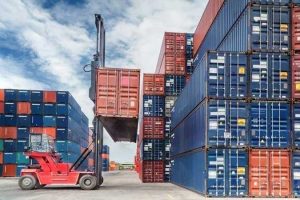By Kenneth Christiane L. Basilio, Reporter
THE PHILIPPINES risks losing as much as P30 billion in revenues if the government implements a zero-tariff scheme on selected American goods, the Bureau of Customs (BoC) told congressmen on Tuesday.
Customs Commissioner Ariel F. Nepomuceno said the agency projects P27 billion to P30 billion in collections from US imports such as vehicles, pharmaceuticals and soybeans this year. That revenue, however, would be foregone should tariffs be scrapped as part of trade talks with Washington.
“The reduction of tariff from our US imports… will impact our collections,” he told a House of Representatives hearing.
The discussions come as the US seeks wider trade concessions from Manila. US President Donald J. Trump earlier announced a 19% tariff on Philippine exports to the US, slightly lower than the 20% floated in August. In turn, the Philippines agreed in principle to exempt US cars, wheat, soybeans and medicines from domestic tariffs.
The Philippines had initially faced a 17% tariff in April.
Trade Undersecretary Allan B. Gepty said last month zero tariffs on American goods had not been formally granted, stressing that negotiations were continuing. Finance Secretary Ralph G. Recto also said in July that foregone revenues could reach about P6 billion should the country agree to a narrower set of exemptions.
However, Mr. Nepomuceno’s estimate suggests a much bigger revenue impact if a broader tariff cut is applied.
The zero-tariff policy could complicate the government’s fiscal consolidation plans, John Paolo R. Rivera, a senior research fellow at the Philippine Institute for Development Studies, told BusinessWorld.
“The potential revenue loss is substantial, especially given the National Government’s ongoing efforts to manage the fiscal deficit and rising debt levels,” he said in a Viber message.
The Philippines’ debt-to-gross domestic product ratio stood at 63.1% as of end-June, the highest since 2005 and above the 60% threshold considered sustainable for developing economies.
Outstanding debt reached a record P17.56 trillion in July, up 11.9% from a year earlier and already surpassing the government’s P17.36-trillion projection for 2025.
Removing tariffs on selected US goods might ease consumer prices, but Mr. Rivera said the government should strengthen tax enforcement to offset revenue losses from the zero-tariff treatment.
“Beyond revenue concerns, the broader market implications could be mixed,” he said, noting that it could lead to cheaper goods but disproportionately affect producers.
“It may expose local producers, especially in agriculture and light manufacturing, to stiffer competition from cheaper US imports, which could affect domestic production and employment in vulnerable sectors,” he said.
Despite the risks, the Customs bureau expressed confidence in meeting its 2025 collection goals.
Customs Assistant Commissioner Vincent Philip C. Maronilla reported that revenues hit P543.95 billion in the first seven months of the year.
“We’re pretty confident that we will reach, if not surpass, our 2025 collection target,” he told lawmakers.
The BoC is tasked with collecting P1.06 trillion this year, 14.28% higher than its actual collection of P931.05 billion last year.
Value-added tax (VAT) on imports has been the “largest and most consistent revenue contributor,” Mr. Maronilla said.
From January to July, VAT collections reached P467 billion, close to the Bureau of Internal Revenue’s P473-billion full-year target.
Economists said the government now faces a difficult balancing act between maintaining fiscal revenues and deepening trade relations with the US.
“While such a policy might bring short-term consumer gains, it must be approached with caution and complemented by safeguards,” Mr. Rivera said.
He added that any decision must weigh the potential benefits of cheaper imports and stronger trade ties against the long-term risks of eroding government revenue and weakening domestic producers.






